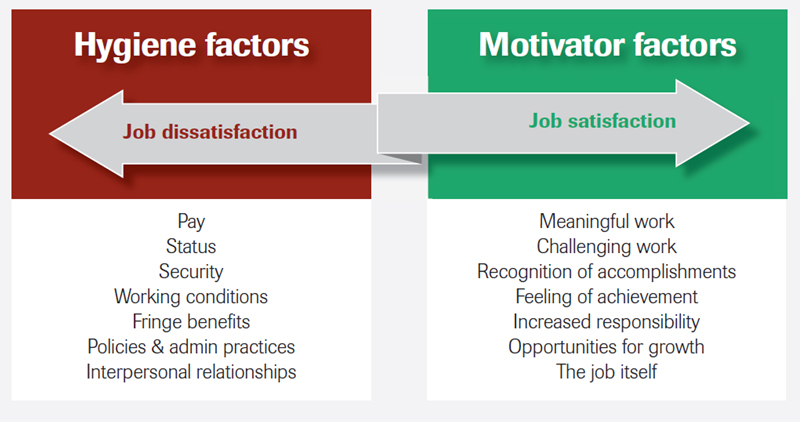Once you've removed obstacles that could slow your team's progress, it's time to assess whether you are managing them in an appropriately positive way. There are several areas to focus on here for the team.
Teams that fully grasp the purpose of what they do are usually more engaged than teams without this understanding. This is why it's important to create meaning for your people in their work. This is far easier in a healthcare environment than many others, as individuals clearly see how they can make a positive difference to the health and wellbeing of customers and patients.
Create a team charter to define each person's role, the group's purpose, and your own expectations. Team charters are useful for a happy team, because they provide focus and direction. After all, when your team members know what they're doing (and why), they can all move forward together, instead of possibly pulling in different directions.
Next, look at the objectives that you've set for your team. Make sure that your team members' goals align with those of the pharmacy as a whole. Without this framework in place, your team members might feel unmotivated, simply because they're not sure what they should be doing, or because they don't understand how their role benefits the pharmacy.
Keep in mind that you play an enormous part in how your people feel day to day, as well as in their long-term success. Look at how you're communicating with them, and how you're helping them develop on an individual level.
Keep your team informed about what's happening in the business and in the wider world of pharmacy, as well as within the team. The more open and transparent you are, the easier it will be to build trust and create good relationships. Schedule regular meetings to discuss important updates or changes. This also gives your team members a chance to voice any concerns or issues that they're having with their work.
Research shows that autonomy plays a significant role in how satisfied people are in their jobs, so do what you can to give more power to everyone on your team. This might mean delegating important tasks, or simply stepping back and letting people choose how they're going to complete a project. An added benefit of encouraging autonomy is that people's work often improves when they have the power to choose when and how they complete it.

